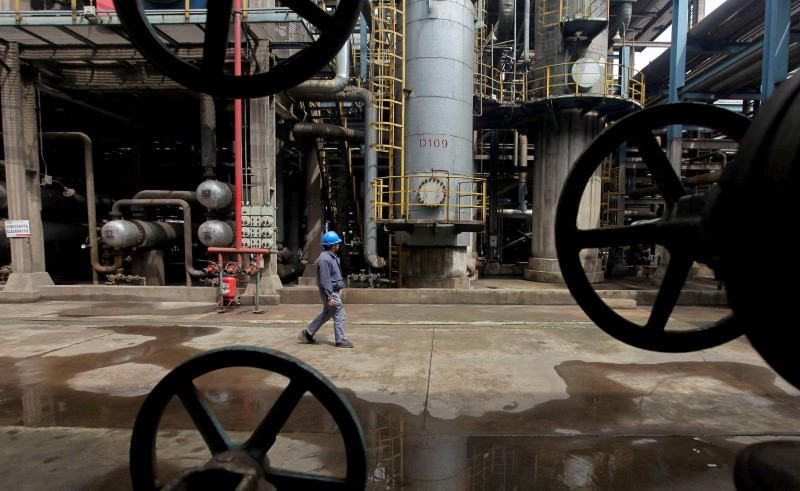Investing.com — Oil prices fell on Monday as concerns about weakening global demand and stronger non-OPEC production weighed on sentiment and offset rising geopolitical tensions.
At 2:30 PM ET (14:30 GMT), the stock was down 1.7% at $79.78 per barrel, while down 1.8% to $75.81 per barrel.
The US will play the dominant role in non-OPEC crude oil production
Production is expected to increase by 500,000 barrels per day this year, a step down from last year’s 1 million barrels per day but still responsible for 60% of non-OPEC production growth.
Goldman’s call stokes fears about growing non-OPEC output, weakening OPEC’s efforts to curb supply.
The Aug. 1 meeting of the Joint Ministerial Monitoring Committee, OPEC+’s panel that monitors the oil market, is not expected to recommend changes to the group’s current production policy plan. Traders expect OPEC+ to continue to serve when it comes to oil production. Summer demand was strong enough for some of the current production cuts to be reversed.
The strike on the Golan Heights increases tensions in the Middle East
At least 12 people were reportedly killed in a rocket attack on the Israeli-occupied Golan Heights last weekend. Both Israel and the US blame Iran-backed Hezbollah, which has denied responsibility for the attack.
Israel has vowed retaliation against Hezbollah in Lebanon, and Israeli fighter jets struck targets in southern Lebanon on Sunday.
These rising tensions caused traders to place a certain risk premium on oil prices, especially in the event of a wider war between Israel and Hezbollah. Such a scenario could disrupt the supply of crude oil in the Middle East.
The news is also seen as dimming the prospect of a ceasefire between Israel and Hamas in Gaza, which has been gaining strength.
China fears about demand and concerns about supply are keeping oil behind
However, the crude oil market is unable to maintain previous gains as the prospect of weaker demand and a potential supply glut in the coming months weighed on sentiment.
Lingering concerns about top importer China, which is struggling with a slowing economic recovery, continued to weigh on oil after causing sharp losses in crude over the past three weeks.
The prospect of a supply glut in coming months – against the backdrop of increased oil production in the US and other non-OPEC countries – has also weighed on oil prices in recent weeks.
The market weakness comes ahead of the OPEC+ Joint Ministerial Monitoring Committee meeting, which will take place on Thursday.
The committee is not expected to recommend changes to production policy, but “if any surprises arise, they are likely to come in the form of delaying the start of the gradual easing of supply constraints, which will begin in October,” the committee said. analysts at ING in a note.
Speculators become negative
The weakness in the crude oil market lately has caused speculators to become increasingly negative.
The latest positioning data shows that speculators have reduced their position in ICE by 37,541 lots over the past week, leaving them with a net long of 146,349 lots last Tuesday. Speculators also reduced their net long positions in NYMEX WTI by 24,312 lots to 239,237 lots.
“Concerns about Chinese demand have led to these speculative outflows,” ING analysts said in a note. “While this is not just true for oil, metals have also seen heavy speculative selling recently, due to concerns about China.”
(Peter Nurse, Ambar Warrick contributed to this article.)


